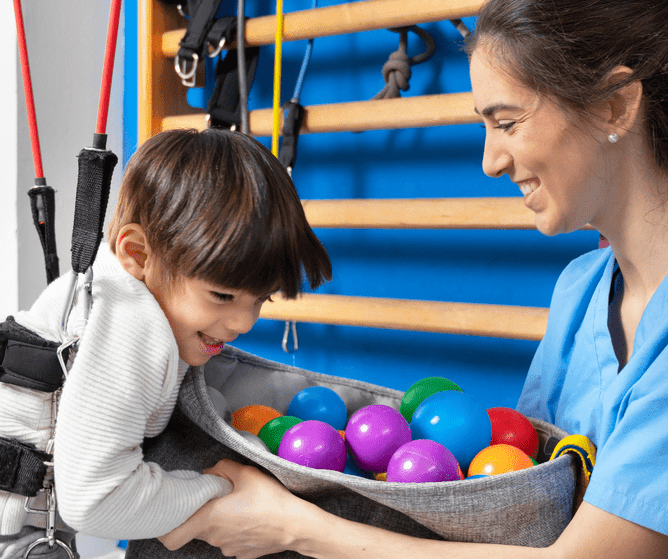Small Steps, Big Gains: The Journey of Therapy for Cerebral Palsy
Cerebral palsy is a lifelong condition that affects movement and coordination, typically caused by brain injury or abnormal development during early life. For individuals living with cerebral palsy, everyday activities such as walking, dressing, or playing may present significant challenges. But with the right support, these challenges can be met with strength, confidence, and purpose. Therapy can make all the difference.
Understanding the Role of Therapy in Cerebral Palsy
Therapy is central to improving mobility, strength, and independence in people with cerebral palsy. Common difficulties include impaired balance, reduced muscle control, and stiffness or spasticity. Through tailored programs, Exercise Physiologists and Occupational Therapists work with individuals to strengthen muscles, improve flexibility, and support better motor control.
At Holistic Strength, our allied health team develops customised therapy plans to meet each person’s unique needs. Whether it’s improving posture for a child learning to sit independently or helping a teenager build strength for community participation, therapy goals are always guided by what matters most to the individual and their family.
The Power of Small Steps
In the journey of therapy, progress is often measured in small but meaningful ways. Every new skill, no matter how small—can have a big impact on confidence and quality of life. Therapists use a variety of strategies to make therapy engaging and effective, including play-based activities for children and goal-oriented exercises for adults.
Exercise Physiology plays a critical role in this process. By focusing on movement patterns, cardiovascular fitness, and strength training, Exercise Physiologists help individuals improve their function in everyday tasks. The physical gains achieved through consistent sessions can also support mental wellbeing; fostering independence, improving mood, and reducing the risk of associated health conditions.
A Holistic, Team-Based Approach
The best outcomes for individuals with cerebral palsy come from a multidisciplinary approach. At Holistic Strength, our Exercise Physiologists work alongside Physiotherapists, Occupational Therapists, Speech Pathologists, and Dietitians to provide holistic care. This ensures that therapy not only supports physical development but also addresses communication needs, nutrition, and participation in daily life.
Speech Pathology can help individuals strengthen communication and swallowing skills, while Occupational Therapy focuses on everyday tasks like dressing, feeding, and self-care. Each professional contributes a unique piece to the puzzle, supporting the individual as a whole, rather than treating challenges in isolation.
Empowering Individuals and Families
Therapy for cerebral palsy is most effective when families, carers, and therapists work together. Encouragement from loved ones builds resilience and motivation, while consistent professional support provides structure and accountability. Over time, therapy builds not just physical skills, but also confidence, independence, and a positive sense of self.
Conclusion
Every journey with cerebral palsy is unique, but the goal is shared: to live life as fully and independently as possible. Through consistent support and a collaborative therapy approach, individuals with cerebral palsy can achieve small steps that lead to big gains. At Holistic Strength, we’re here to walk that journey with you.
